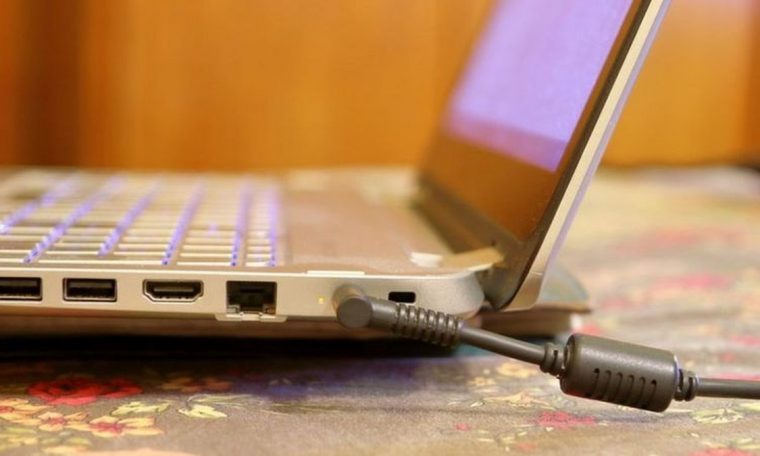
Have a general question about a laptop How to extend battery life. Or, at least, how to prevent more than normal wear and tear.
Although all batteries degrade over time, many users question whether we might be affected by their use – even a little – of their ability to retain energy.
In other words: should we keep them on 100% charge at all times or let the battery run before charging?
BBC News Mundo, the BBC’s Spanish-language service, listened to experts and technology company employees about the best way to use batteries, which are mostly made of lithium (either lithium ion or lithium polymer).
Should we keep the laptop plugged in all the time? – Photo: Getty Image via BBC
Manufacturers with floor
“Battery technology gets better with every generation. 10 years ago, laptop battery efficiency deteriorated after a few hundred charge cycles,” explains Ashley Rolf, Lenovo’s chief technology officer in Ireland and the UK.
Now, Laptop battery lasts for three to five years, In which they can complete between 500 and 1,000 charge cycles.
Leaving a laptop plugged in with 100% battery at all times will shorten its life, Xplos Rolf.
His colleague Phil Jake, director of strategic technology at Lenovo, agrees. “We found that batteries fall more quickly if they are fully charged, especially at higher temperatures,” explains Jake.
This is because “100% charge is the ‘heaviest’ state, the battery can be inside, because when the voltage is highest,” energy technology researcher Kent Griffith of Northwestern University explains.
On the other hand, keeping the battery at 100% is “absolutely safe and completely normal,” Rolf says. According to him, laptops today “use control sensors to ensure that the battery does not overcharge or overheat”.
However, HP does not recommend leaving a laptop connected to electricity at all times.
“Most batteries today have the technology to avoid reaching 100%,” the company said in a statement. But this technique does not prevent the high state from “causing additional stress on the battery that can accelerate its corrosion over time.”
Hence, “If you keep the battery without charging 100%, it can definitely last a long time“, Dez Griffith.
Experts recommend limiting loading to 80% – Photo: Getty Image via BBC
These experts recommend to limit the time that the laptop remains fully charged or, instead of charging it up to 100%, charge it only up to 80% each time you plug it in.
“Technically, batteries are ‘happier’ at 50% charge, so technicians say it’s better to keep them between 20 and 80%,” Rolf says.
“Limiting the charge to 80%” provides the maximum benefit, says Jacques, yet there is a significant advantage in reducing the maximum charge point to 90 or 95%.
Microsoft also warns on its website that in the case of its Surface laptop (not for other brands) “batteries on high charge will lose capacity faster.”
“You can help prevent this quick deterioration by not leaving your laptop plugged in for long. If you need to keep your laptop constantly plugged in, we recommend using battery charge limit mode , “Microsoft says.
Many brands such as Microsoft, Lenovo and HP offer the option to limit the maximum amount of laptops in their settings.
For example, HP allows you to limit up to 80% in “maximum battery health” mode.
In general, “if you want the battery to last longer, you can provide a little less energy (80% instead of 100%) each cycle, so the battery can complete more charge cycles,” Griffith says Huh.
While these recommendations help extend lifespan, experts say it’s not such a big difference that you forget to disconnect your laptop when it reaches 100%.
“All laptops have control circuits to protect the battery and prevent overcharging,” says Lenovo Rolf.
It also clarifies that “batteries last so long these days that most users probably don’t have to worry about it.”
Today, “batteries are so good that they usually last longer than the life of a laptop,” he says.
Rolf’s ultimate recommendation is to think about how you will use the laptop. That is, evaluate whether you will have continuous access to the outlet or if you will not be able to connect to the power for a long time. In the latter case, it would be better to charge it with a full charge.
“If you stay at your desk most of the time, put a load cap on it,” he says. “But if you’re traveling most of the time, leave it at 100% and don’t worry about it!”



